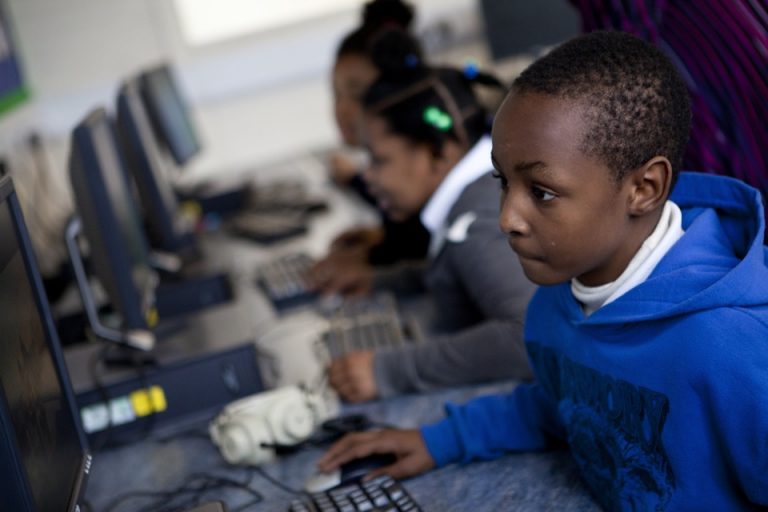
At the recent World Government Summit in Dubai, Nvidia CEO Jensen Huang delivered a thought-provoking speech that challenged the conventional wisdom surrounding the importance of coding skills in the tech industry.
In a break from tradition, Huang argued that in the era of artificial intelligence (AI), programming is no longer a vital skill for individuals to thrive in technology-related fields. The Nvidia CEO said that for 10-15 years almost every person sitting on a tech forum stage would have insisted that it is “vital” for young people to learn computer science, to learn how to program computers.
He expressed the belief that youngsters should no longer be encouraged to learn coding.
Register for Tekedia Mini-MBA edition 19 (Feb 9 – May 2, 2026): big discounts for early bird.
Tekedia AI in Business Masterclass opens registrations.
Join Tekedia Capital Syndicate and co-invest in great global startups.
Register for Tekedia AI Lab: From Technical Design to Deployment (next edition begins Jan 24 2026).
During a minute-long segment of his stage time, shared widely on social media platforms, Huang made a striking assertion: “It is our job to create computing technology such that nobody has to program. And that the programming language is human.”
This statement denotes his belief that AI advancements have made it possible for individuals to leverage computing power without requiring extensive coding knowledge, thus democratizing access to technology.
Huang’s remarks represent a significant departure from the traditional view of coding proficiency as essential for success in the tech industry. Instead, he advocates for a broader focus on expertise in fields such as biology, education, manufacturing, and farming.
By shifting the emphasis away from coding skills, Huang envisions a future where individuals can harness AI to enhance their capabilities across various domains.
Despite advocating for a reduced emphasis on traditional programming skills, Huang acknowledges the importance of upskilling individuals to effectively utilize AI technology. He emphasizes the need for everyone to understand how and when to apply AI programming, suggesting that the upskilling process will be both delightful and surprising.
Jensen Huang, CEO of Nvidia, argues that we should stop saying kids should learn to code.
He argues the rise of AI means we can replace programming languages with human language prompts thus enabling everyone to be a programmer.
AI will kill coding.pic.twitter.com/SxK9twhEby
— Dare Obasanjo? (@Carnage4Life) February 24, 2024
Huang’s assertions have ignited a spirited debate within the tech industry, with prominent analyst Patrick Moorhead offering his perspective. Moorhead emphasizes the enduring relevance of coding skills, citing historical examples where predictions of technologies rendering coding obsolete have proven unfounded.
Drawing parallels with past technological revolutions, such as desktop publishing (DTP), Moorhead argues that coding skills remain essential in the evolving tech landscape.
“While I agree that DTP and other digital art tools didn’t kill creativity, I don’t remember anyone suggesting moving from scalpels, Spray Mount, and scraps of paper to DTP would actually stunt creativity,” Moorhead commented on Twitter, noting the enduring value of coding skills.
Huang’s assertions and Moorhead’s response highlight the ongoing evolution of technology and its implications for the future of work and education.
In the context of Huang’s remarks challenging the traditional importance of coding skills in the tech industry, it’s crucial to consider the impact of artificial intelligence (AI) on coding in the future.
Huang’s assertion that AI advancements have made it possible for individuals to leverage computing power without extensive coding knowledge raises questions about the future role of coding in a world increasingly dominated by AI technologies. With AI-driven tools becoming more sophisticated, the landscape of software development and programming is likely to undergo significant transformations.
Some potential impacts of AI on coding in the future
Automated Code Generation: AI algorithms can analyze data and patterns to generate code automatically, reducing the need for manual coding by human developers. This could streamline the software development process and accelerate the pace of innovation.
Natural Language Programming: Advancements in natural language processing (NLP) could enable developers to interact with computers using human language, eliminating the need for specialized programming languages. AI-powered assistants could translate high-level instructions into executable code, making programming more accessible to non-technical users.
Code Optimization and Debugging: AI algorithms can optimize code for performance and efficiency, as well as identify and fix bugs automatically. This could improve the quality of software and reduce the time and effort required for debugging and troubleshooting.
AI-Assisted Development Tools: AI-powered development tools can provide real-time suggestions, recommendations, and feedback to developers as they write code. These tools can enhance productivity, assist with problem-solving, and facilitate collaboration among team members.
Personalized Learning and Skill Development: AI-based learning platforms can personalize learning experiences for individuals based on their unique learning styles, preferences, and goals. This could democratize access to coding education and enable learners to acquire programming skills more efficiently.
Impact on Job Roles and Career Paths: The rise of AI in coding may reshape job roles and career paths in the tech industry. While some traditional coding tasks may become automated, new opportunities may emerge in areas such as AI development, machine learning engineering, and AI ethics and governance.
Ethical and Societal Implications: As AI becomes more integrated into the coding process, there are ethical and societal considerations to address, such as bias in AI algorithms, data privacy concerns, and the impact of automation on employment. It will be essential to develop ethical guidelines and regulations to ensure responsible AI development and deployment.
Overall, while AI technologies have the potential to transform the coding landscape, it’s essential to recognize that coding skills may continue to be valuable, albeit in different forms. The future of coding is likely to involve a combination of human creativity, problem-solving abilities, and AI-driven automation, shaping the way software is developed, deployed, and maintained in the years to come.




Can the same AI carry out effective debugging on non-conforming, erroneous code that the same AI was responsible for producing?